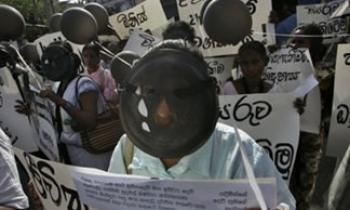The Right to Information Act (RTI), that gives legal rights to citizens to seek information from the government came into force on Wednesday. India is now among 55 countries which have such a legislation. The Act is aimed at bringing about transparency and accountability in the functioning of public authorities, but is not be applicable in the state of Jammu and Kashmir.

©: FreedomInfo
The legislation is aimed at curbing corruption and inefficiency in the government at various levels as it brings within its ambit Central and State administrations, panchayats, local bodies and non-governmental organisations getting public funds. Under the Act, the authorities are required to respond to queries in 48 hours on issues related to life and liberty.
Citizens will have access to records and extracts or certified copies of documents or records or certified samples of material too. They can obtain information in forms of printouts, CDs, floppies, tapes, video cassettes, or in any other electronic mode. Citizens have the right to ask for records, documents, memos, e-mails, opinions, advice, logbooks, contracts, samples, models and electronic information from authorities concerned. However, file noting has been kept out of the purview of the Act.
The Act, however, exempts 18 security and intelligence organisations from its purview. Matters relating to security and strategic issues, the Intelligence Bureau (IB), Research and Analysis Wing (RAW), Directorate of Revenue Intelligence (DRI), para-military forces and other bodies dealing with the country’s security will not fall in the public domain. The Central Bureau of Investigation (CBI) has not been included in the list of 18.
According to the Act, the Centre has to appoint a Central Information Commission comprising a Chief Information Commissioner and Central Information Commissioners, not exceeding ten, as may be deemed necessary. The Chief Information Commissioner and Information Commissioners will be appointed by the President on the recommendation of a committee chaired by the Prime Minister.
Retired IAS officer, Wajahat Habibullah, is the country’s first Chief Information Commissioner. There will be four other information commissioners. The secretary, personnel, AN Tewari, who authored the final drafting of the legislation, is also in the team. At present, eight states have their own version of the law: Maharashtra, Karnataka, Delhi, Rajasthan, Madhya Pradesh, Tamil Nadu, Assam and Goa. These states are expected to repeal their laws–Maharashtra repealed it on Monday.

©: FreedomInfo
Habibullah told the Indian Express: "The post-colonial structure of having the archaic Official Secrets Act and an insular attitude based on mistrust is in place. We have to try and change that attitude. We have to give the power of information to the people and change the apprehension that with transparency, the security of the state will not be weakened. We have to convince them that instead, it will be strengthened."
By empowering the Central and State Commissions to act as appellate authorities and by vesting them with the powers of a civil court, these bodies have been given the teeth to discourage public authorities from refusing to part with information. To ensure that the information sought is provided quickly, the Act makes it obligatory for the Public Information Officer to provide the information requested for, as permissible under the Act, within 30 days.
The new legislation is seen as a radical improvement on the Freedom of Information Act, 2002. The new legislation confers on all citizens the right to access information and, correspondingly, makes the dissemination of such information an obligation for all public authorities.
The general superintendence, direction and management of the affairs of the Central Information Commission shall vest with the Chief Information Commissioner, who shall be assisted by the Information Commissioners, and may exercise all such powers and do all such acts and things which may be exercised or done by the Central Information Commission autonomously without being subjected to directions by any other authority under this Act. Similarly, state governments will also appoint State Information Officers.
The Act has a provision of penalty to ensure that the government officers and all public authorities give priority to requests for information from citizens. Deterrent penalties have been recommended for failure to provide information in time or for refusing to accept application for information or for giving incorrect information.









